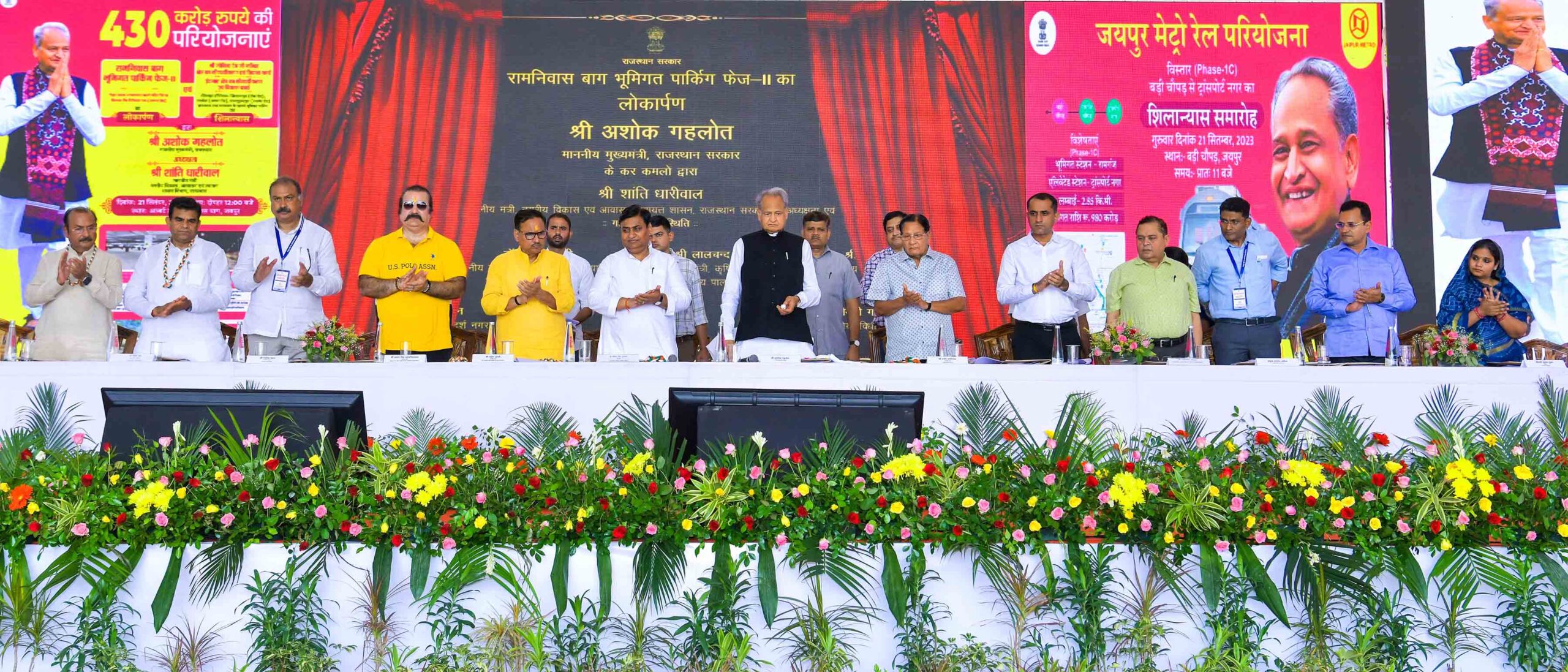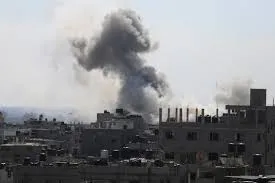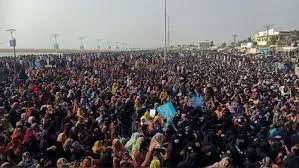Chief Minister Ashok Gehlot inaugurated the foundation stone-laying ceremony of Phase 1-C of the important metro project that will connect Transport Nagar to Badi Chaupad in Jaipur, with an estimated cost of Rs 980 crores. In addition to this, he also inaugurated various development projects worth 1,410 crores. The Chief Minister took a metro ride from the Ramnagar Metro Station to Badi Chaupad and said that the metro journey has its own distinct pleasure. The CM also visited the exhibition of the works done so far by Jaipur Metro at Badi Chaupar Metro Station. The Chief Minister unveiled the statues of 7 freedom fighters at Lakshmi Mandir Tiraha and distributed leases to the householders of Rajiv Housing Scheme Bagrana.
The Chief Minister stated that it’s a matter of pride that Jaipur’s metro network is expanding. He said, “Completing the second phase of the metro from Sitapura to Ambabari is also our dream. He mentioned that governments worldwide consider transportation as a social responsibility, without considering it as a profit or loss. Currently, over 50,000 passengers travel on the Jaipur Metro every day. The foundation stone for Jaipur Metro was laid in 2009, even before the metro was present in other major cities in the country. The construction of the metro was also completed in record time.”
He invited the people of the state to contribute their ideas for the Vision Document under Mission 2030, which aims to make Rajasthan one of the leading states in the country. So far, input has been gathered from more than 2 crore people for this vision document.
Rajasthan model is being followed by other states
The Chief Minister stated that the state government has not left any stone unturned in the development of the state. He said that remarkable initiatives taken in Rajasthan are now being emulated by other states, with political parties including them in their manifestos. Gehlot emphasised, “In Rajasthan, unique laws have been enacted, such as Right to Health, preventing land seizure from farmers, the welfare of gig workers, and minimum income guarantee laws, which are not seen elsewhere in the country. The provision of lifelong imprisonment for leaking question papers has been made in the state. In Kota, an outstanding project has been executed in the Chambal Riverfront, and similar developmental works have been undertaken in Jaipur.”
Benefits of schemes extended to every individual
Gehlot mentioned that, for the first time, every individual in the state has benefited from various government schemes. He said, “The state government has provided relief to the general public through ten welfare schemes by organizing price relief camps. Gas cylinders are being distributed in the state for just 500 rupees. The central government should also make gas cylinders available nationwide for 500 rupees.” He stated that through the Indira Gandhi Urban Employment Guarantee Scheme, even people in urban areas are being provided employment. He also talked about the Kamdhenu Cattle Insurance Scheme and said that the state government is providing free insurance of 40,000 rupees for two milch animals per family.
Top in economic development in northern India
Ashok Gehlot stated that due to the skilled financial management of the state government, Rajasthan is at the top in terms of economic development rate in northern India and second in the country.
He said, “By the end of this financial year, the state’s GDP will reach 15 lakh crore rupees. Our goal is to take it beyond 30 lakh crore rupees by 2030. Tourism has been classified as an industry in the state, which will boost tourism in the coming times. The number of districts in the state has now increased to 50, which will make administration more accessible to the people.”

















